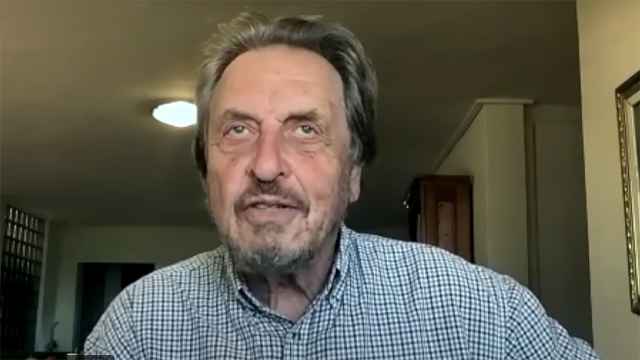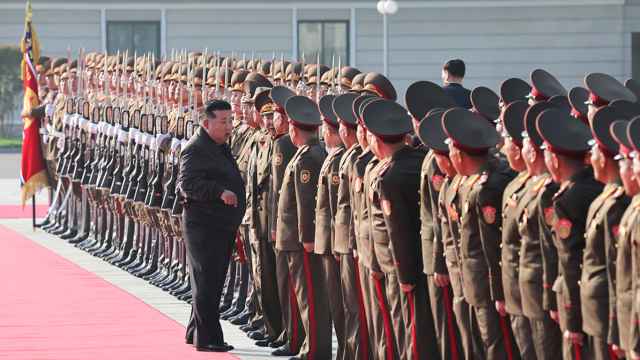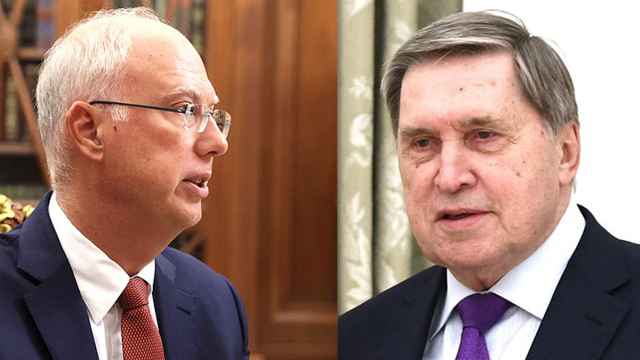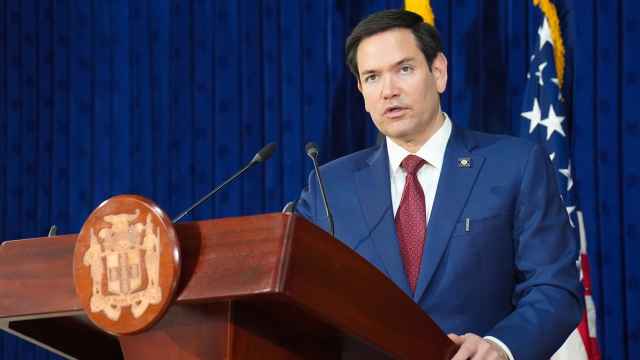Members of the Alpha special forces and other law enforcement agencies who defended the Ostankino against anti-Kremlin demonstrators on Oct. 3, 1993, paid tribute to fallen and wounded comrades near the television center at 10:30 a.m.
Nationalists held a memorial service at the same site at noon, while ultranationalists staged an evening rally at the White House, which back in 1993 housed the parliament, the House of Soviets.
A constitutional crisis erupted on Sept. 21, 1993, when Yeltsin dissolved the parliament amid economic turmoil that saw the population’s income halve over the course of a year.
The Constitutional Court declared the decision unconstitutional, and a parliamentary session chaired by Speaker Ruslan Khasbutov impeached Yeltsin and swore in his vice president, Alexander Rutskoi, as the new president.
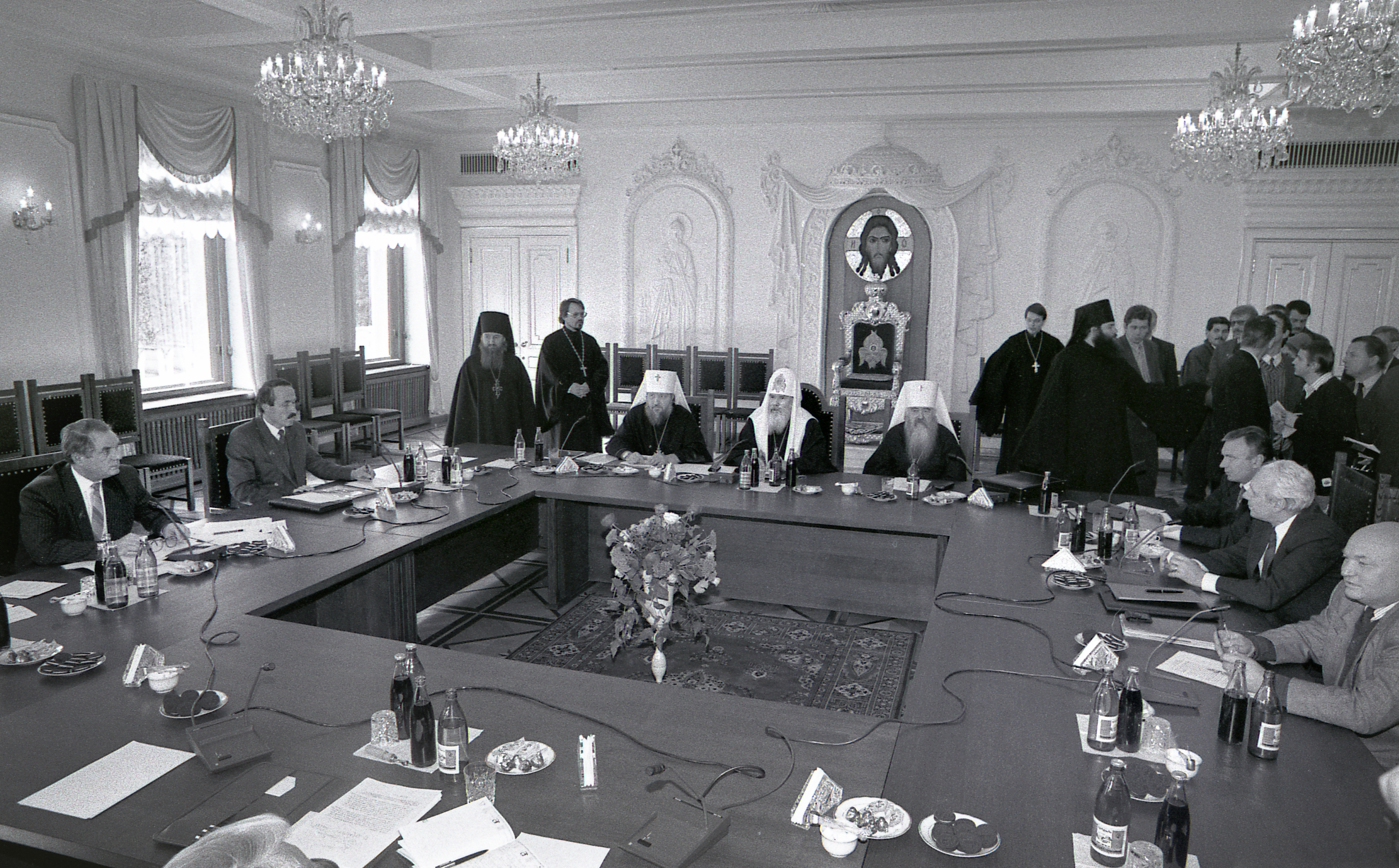 Negotiations overseen by Orthodox leaders between parliamentary members, left, and government officials on Oct. 1 continued to the next day. (Igor Tabakov / MT)
Negotiations overseen by Orthodox leaders between parliamentary members, left, and government officials on Oct. 1 continued to the next day. (Igor Tabakov / MT)
Days passed without compromise from either side, despite efforts of the Russian Orthodox Church to mediate.
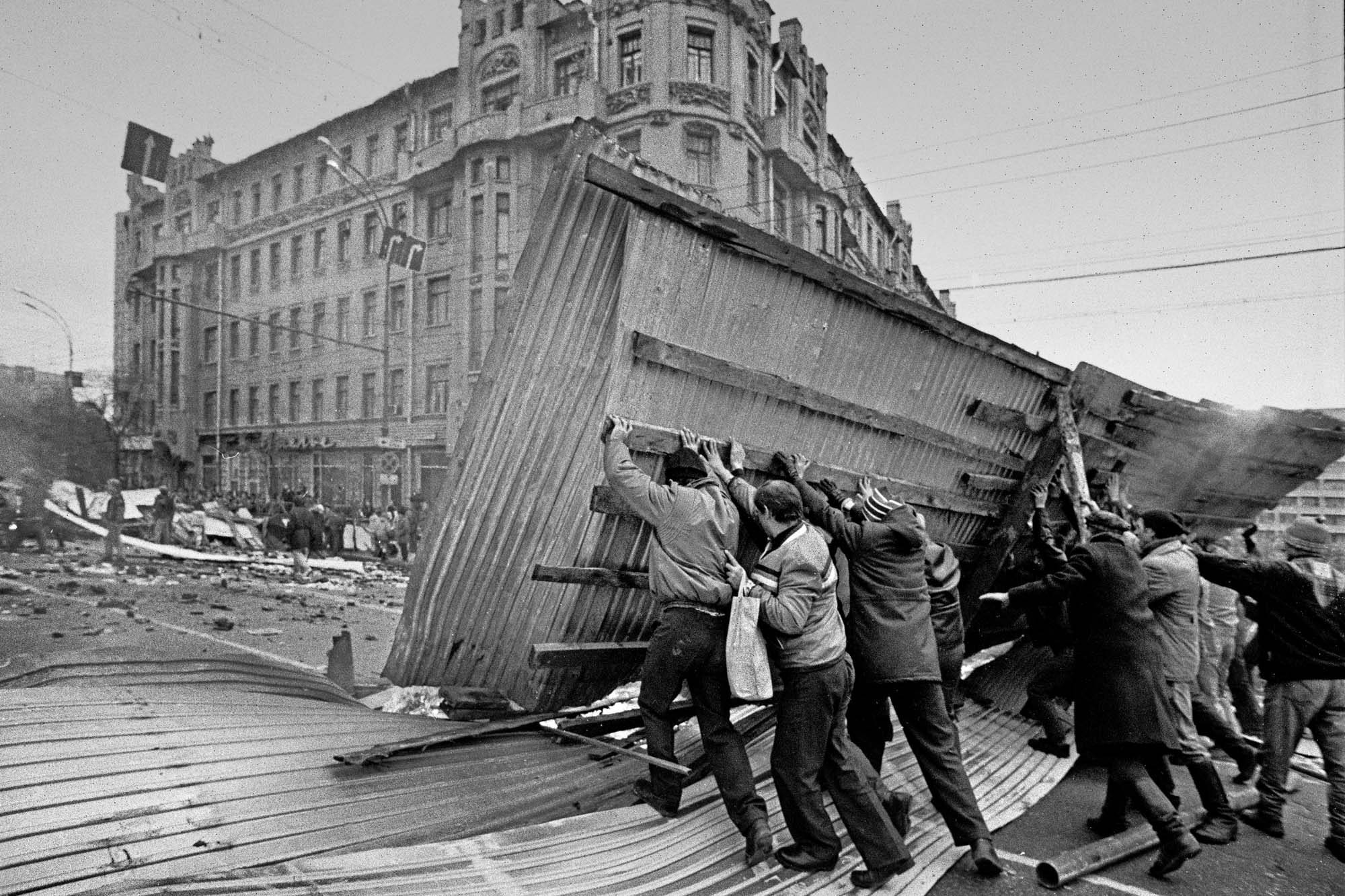 People raising barricades Oct. 2 on Smolenskaya Ploshchad on the Garden Ring. (Vladimir Filonov / MT)
People raising barricades Oct. 2 on Smolenskaya Ploshchad on the Garden Ring. (Vladimir Filonov / MT)
On Oct. 2, protesters blocked traffic on the city’s main streets and constructed barricades.
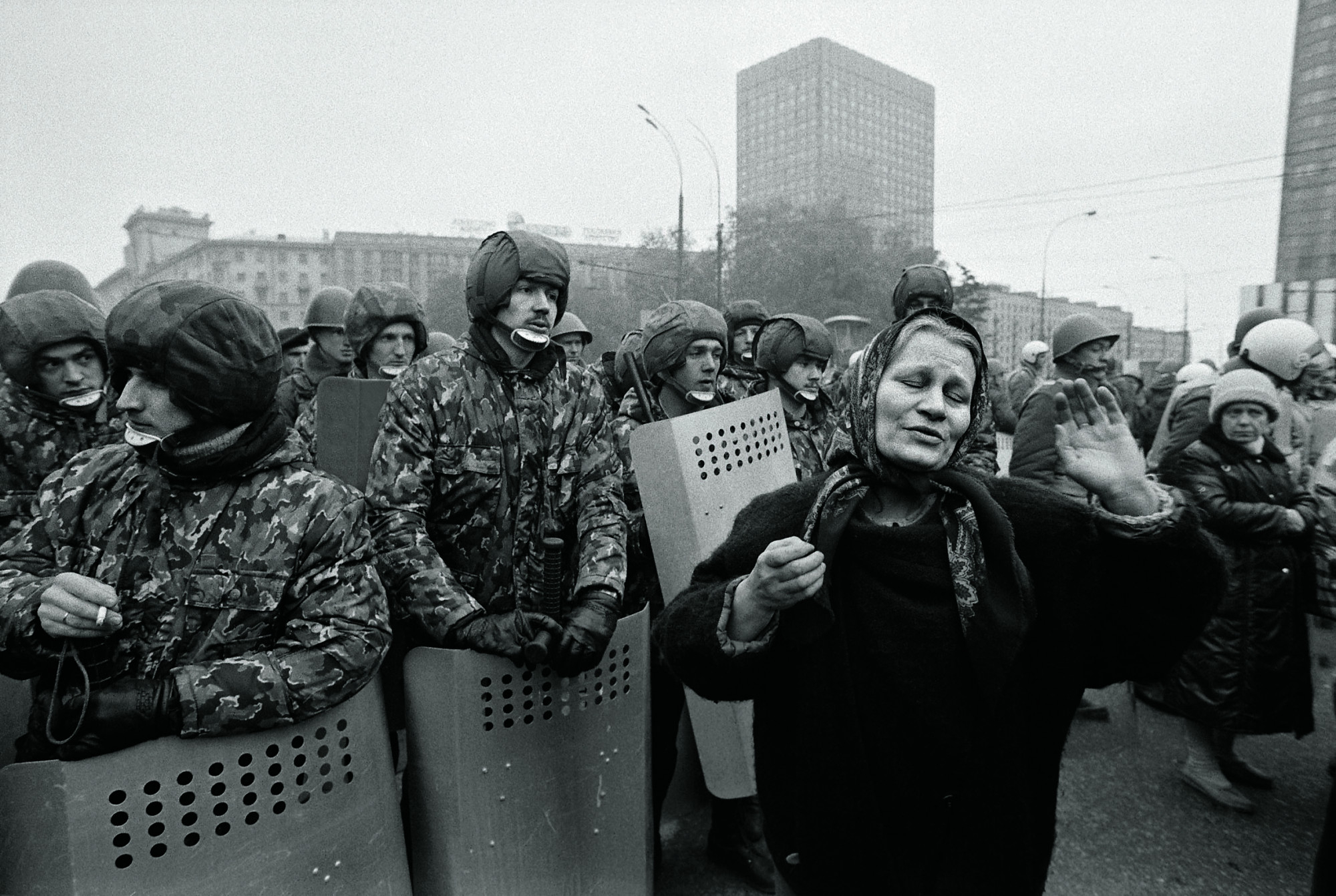 OMON riot police blocking Smolenskaya Ploshchad during the standoff on Oct. 2. (Vladimir Filonov / MT)
OMON riot police blocking Smolenskaya Ploshchad during the standoff on Oct. 2. (Vladimir Filonov / MT)
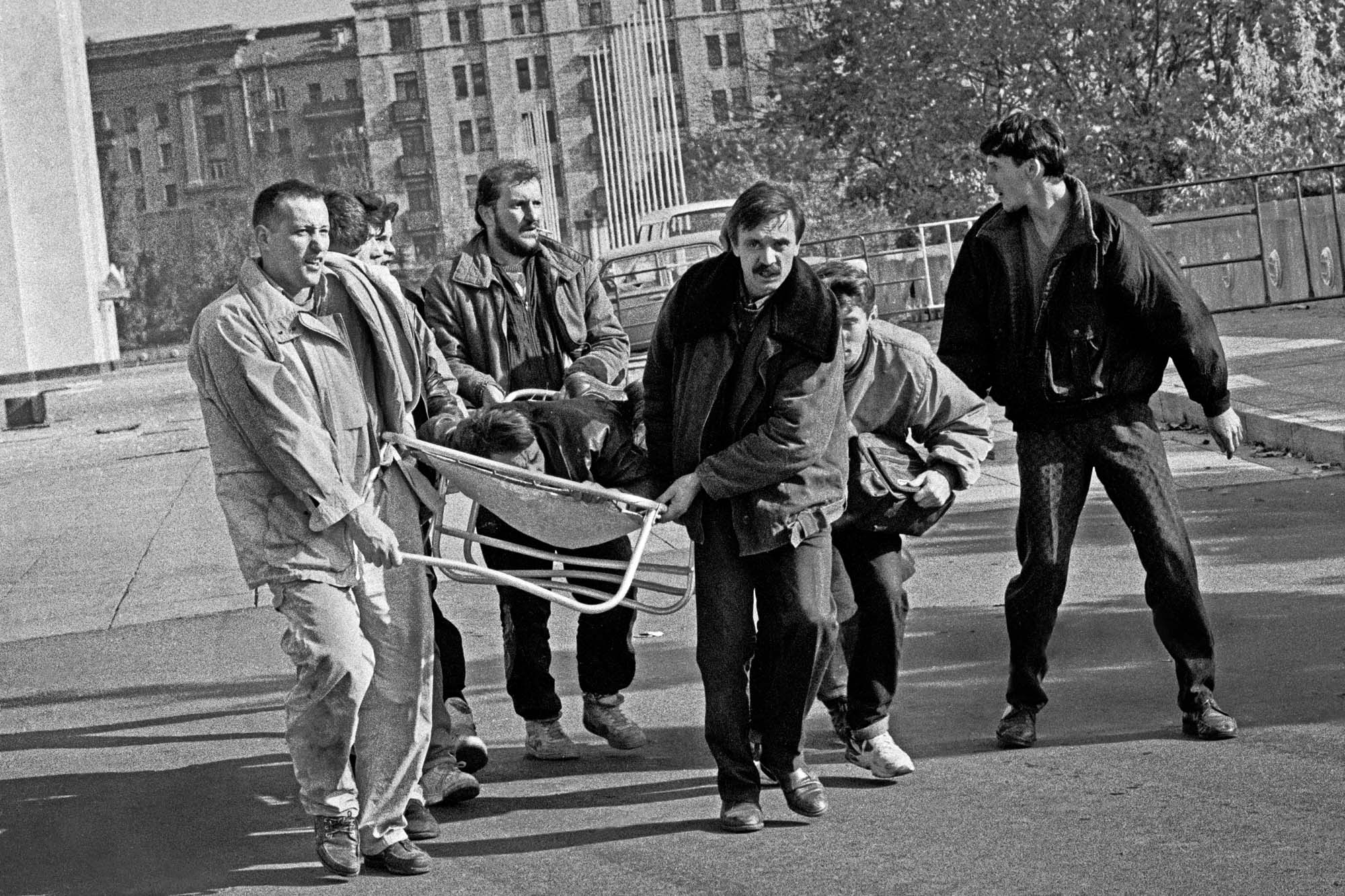 A wounded man being carried away on a stretcher near the House of Soviets on Oct. 3. (Vladimir Filonov / MT)
A wounded man being carried away on a stretcher near the House of Soviets on Oct. 3. (Vladimir Filonov / MT)
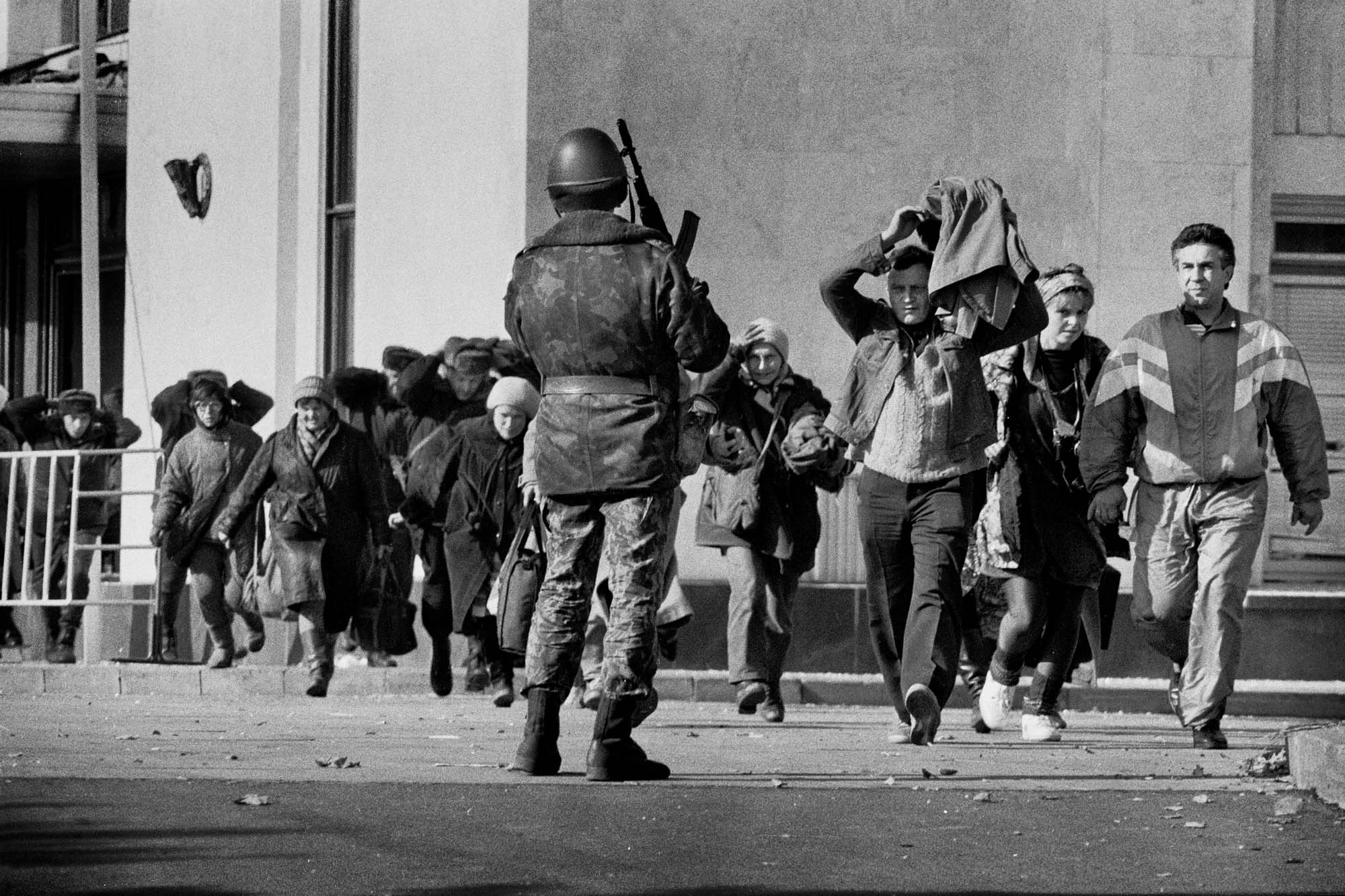 Service personnel being evacuated Oct. 3 from the House of Soviets, now the White House. (Vladimir Filonov / MT)
Service personnel being evacuated Oct. 3 from the House of Soviets, now the White House. (Vladimir Filonov / MT)
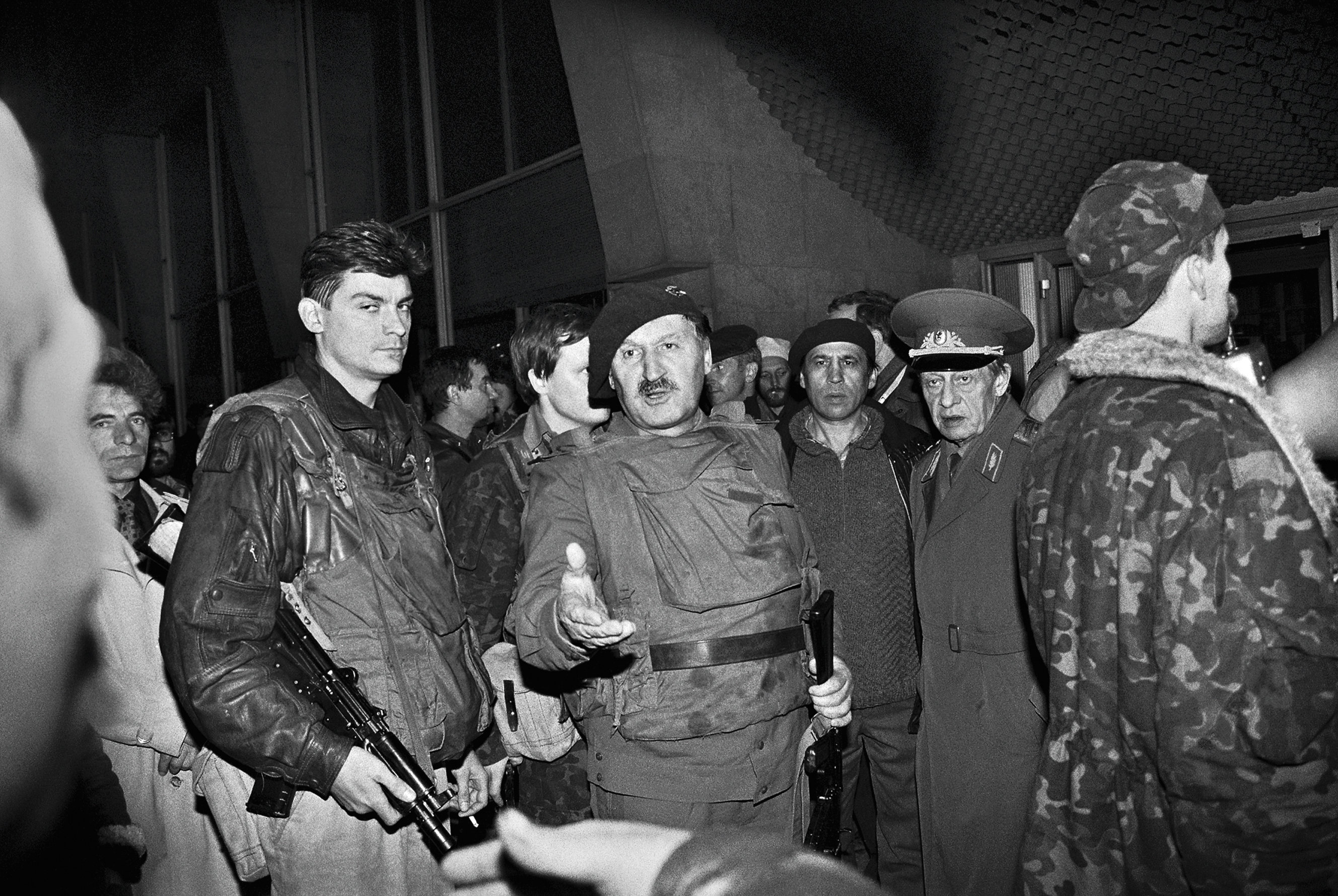 Retired General Albert Makashov, gesturing, leads a crowd storming Ostankino on Oct. 3. (Stetsko / MT)
Retired General Albert Makashov, gesturing, leads a crowd storming Ostankino on Oct. 3. (Stetsko / MT)
Tensions boiled over on Oct. 3 when anti-Kremlin demonstrators toppled police cordons to storm the parliament building, seized the Mayor’s Office and tried to capture Ostankino.
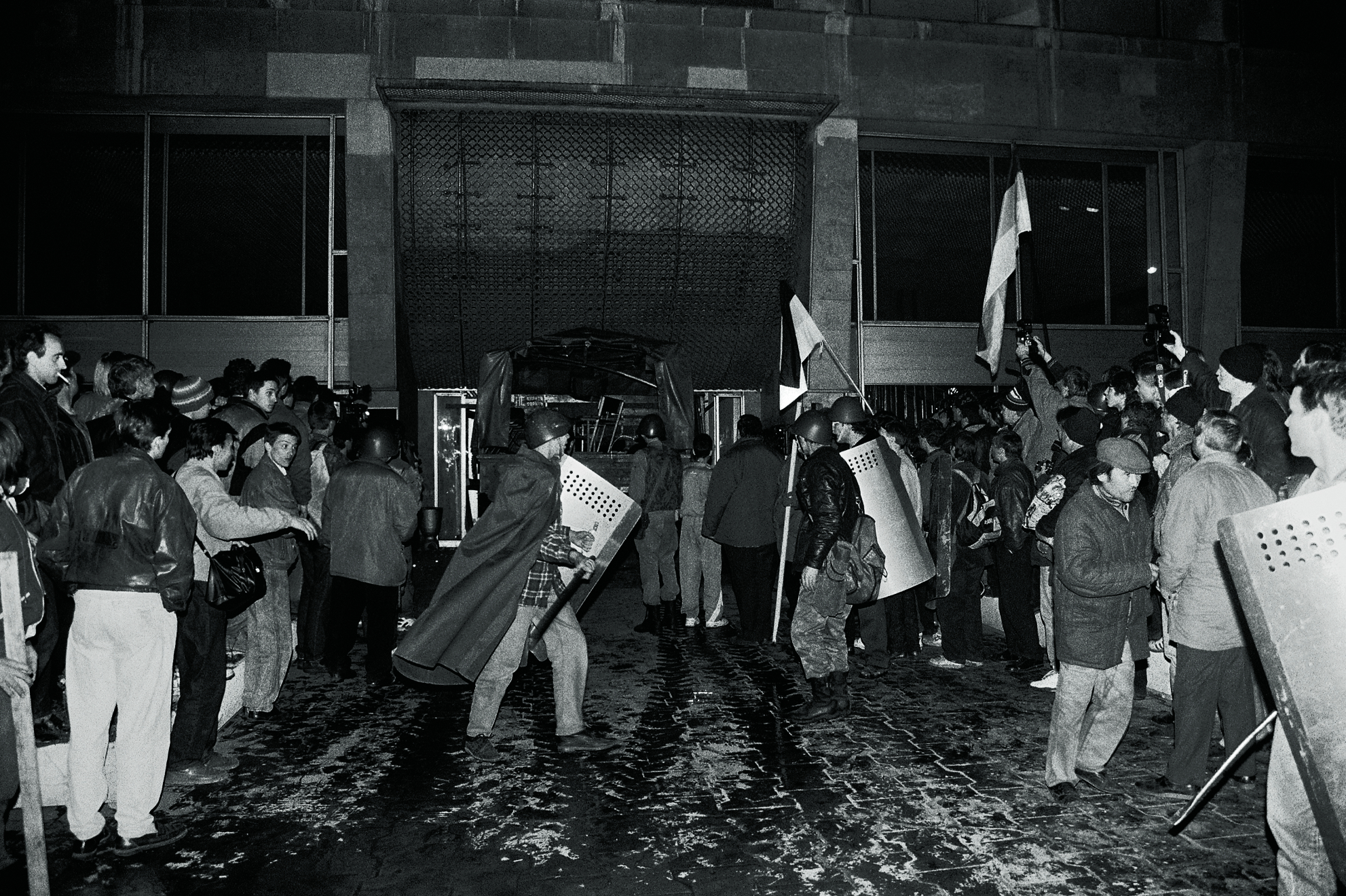 Rutskoi's supporters respond to his call to storm Ostankino on the afternoon of Oct. 3. (Yevgeny Stetsko / MT)
Rutskoi's supporters respond to his call to storm Ostankino on the afternoon of Oct. 3. (Yevgeny Stetsko / MT)
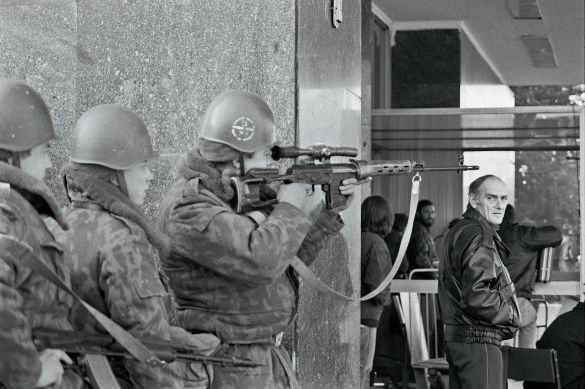 A sniper near the House of Soviets surrounded by troops loyal to President Boris Yeltsin. (Igor Tabakov / MT)
A sniper near the House of Soviets surrounded by troops loyal to President Boris Yeltsin. (Igor Tabakov / MT)
The military, following Yeltsin’s orders, stormed the House of Soviets in the early hours of Oct. 4, removing anti-Kremlin activists holed up inside and arresting their leaders, including Rutskoi.
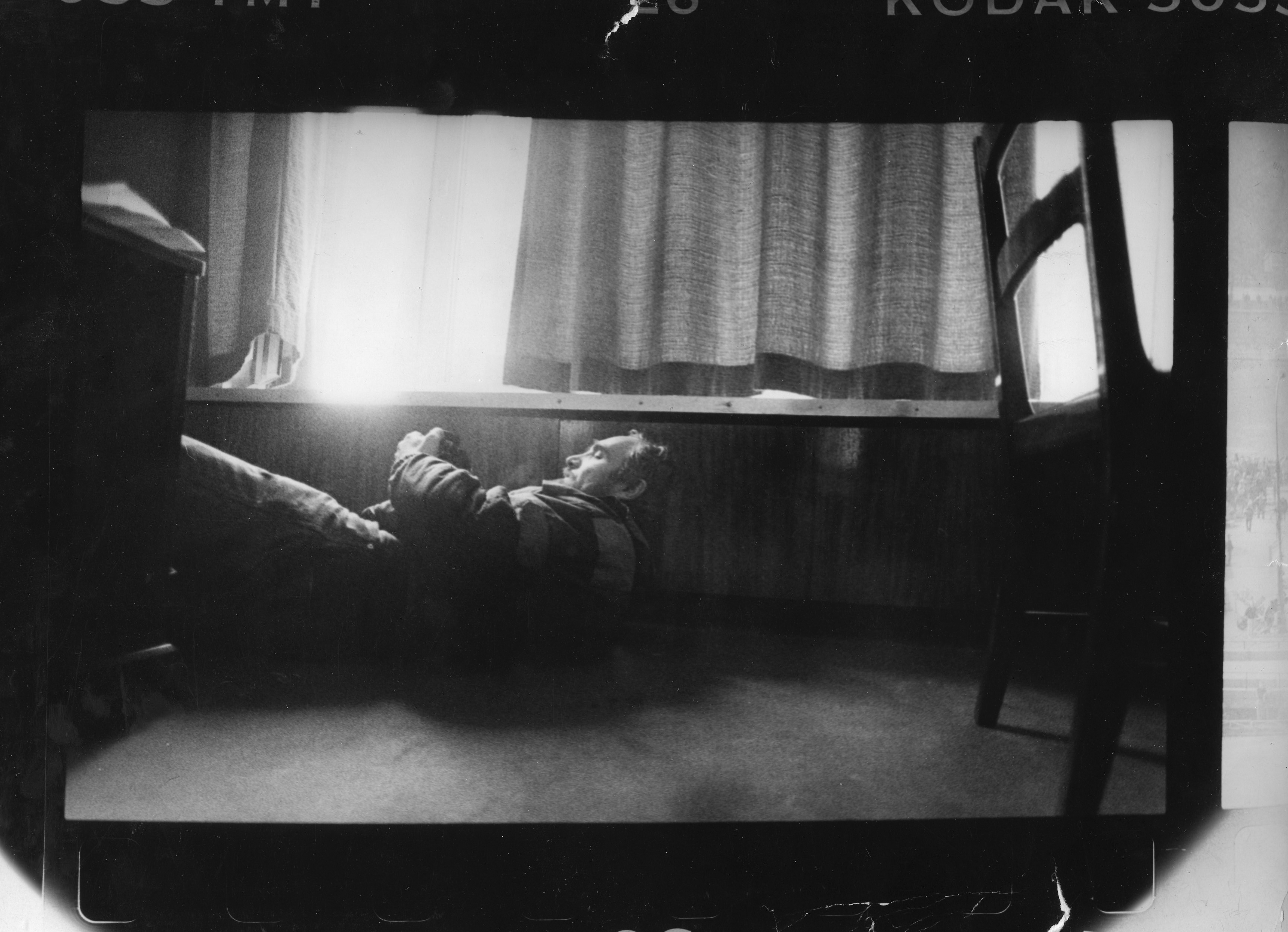 Moscow Times photographer Vladimir Filonov ducking to avoid sniper fire as he takes pictures from a hotel window opposite the House of Soviets on Oct. 3. (Igor Tabakov / MT)
Moscow Times photographer Vladimir Filonov ducking to avoid sniper fire as he takes pictures from a hotel window opposite the House of Soviets on Oct. 3. (Igor Tabakov / MT)
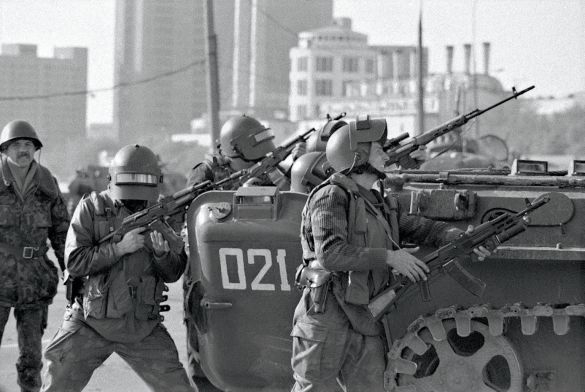 A group of commandos from the Alfa elite special forces setting their sights on the House of Soviets on Oct. 4. (Igor Tabakov / MT)
A group of commandos from the Alfa elite special forces setting their sights on the House of Soviets on Oct. 4. (Igor Tabakov / MT)
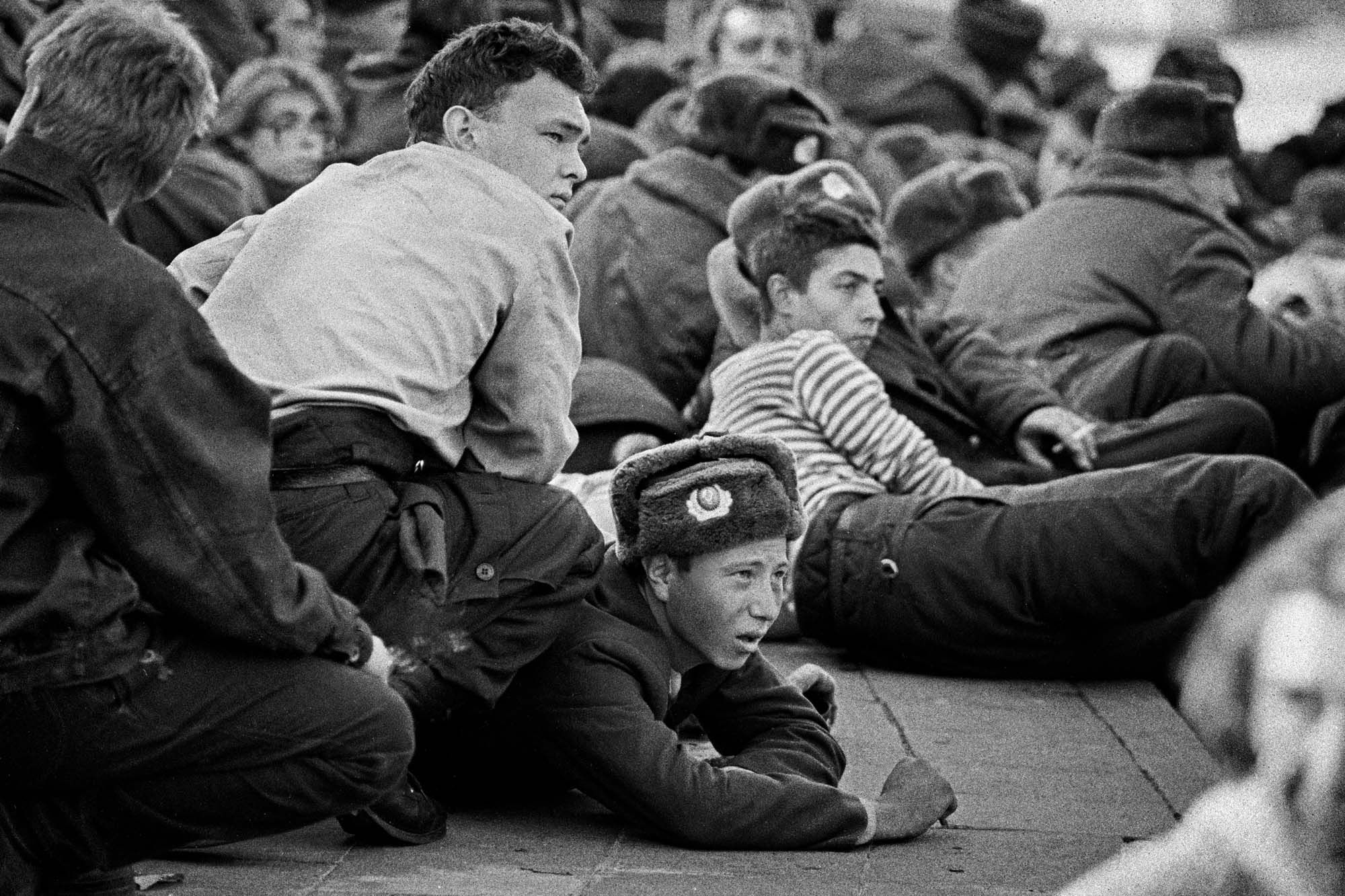 People crouching at the House of Soviets on Oct. 4. (Vladimir Filonov / MT)
People crouching at the House of Soviets on Oct. 4. (Vladimir Filonov / MT)
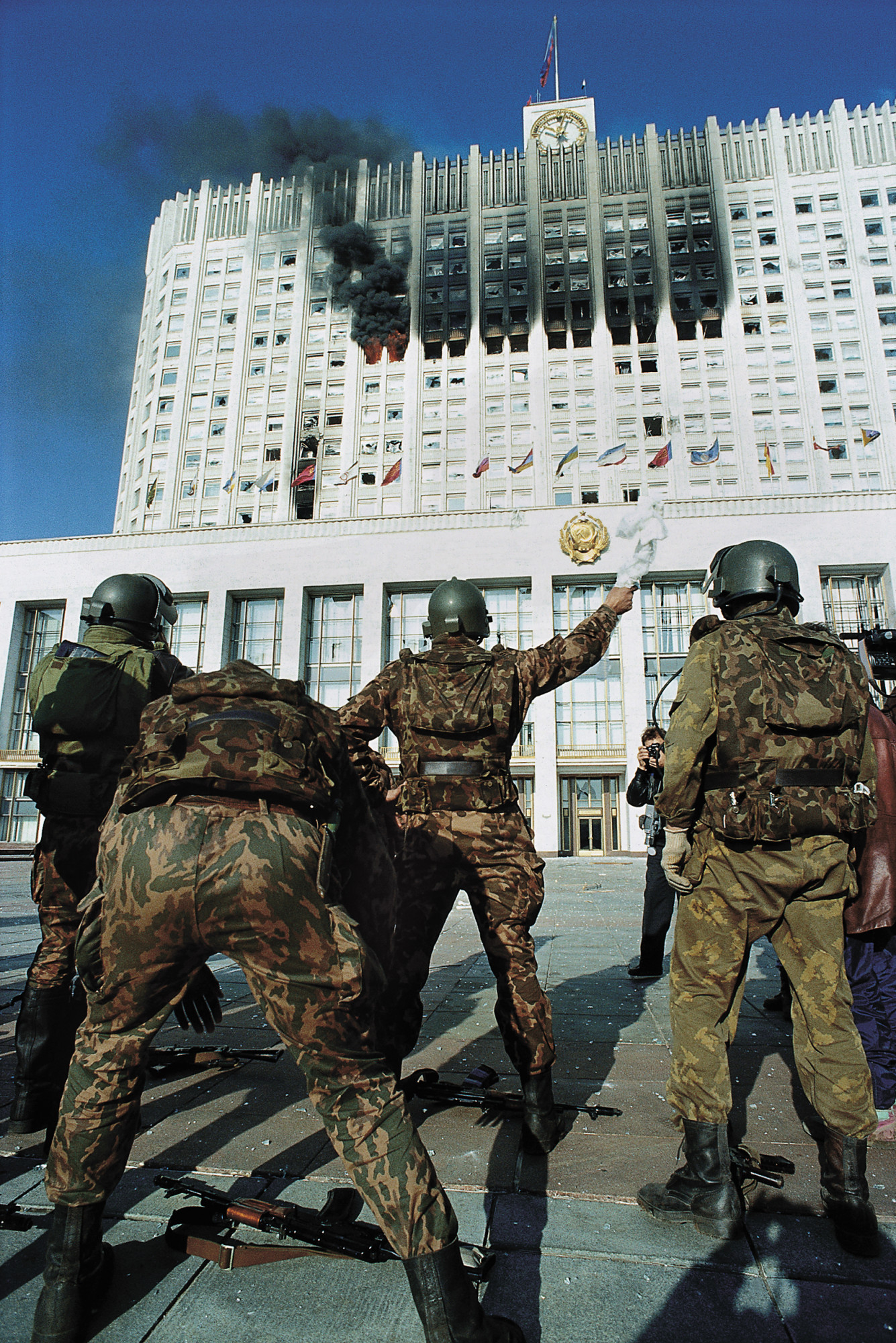 Alfa officers starting negotiations with the defenders of the House of Soviets, residence of the Supreme Soviet, on Oct. 4.
Alfa officers starting negotiations with the defenders of the House of Soviets, residence of the Supreme Soviet, on Oct. 4.
(Vladimir Filonov / MT)
Russians remain largely uncertain on whether Yeltsin or the parliament was in the right. A recent poll by the Public Opinion Foundation found that 57 percent could not answer the question, while 20 percent supported the parliament and 9 percent backed Yeltsin.
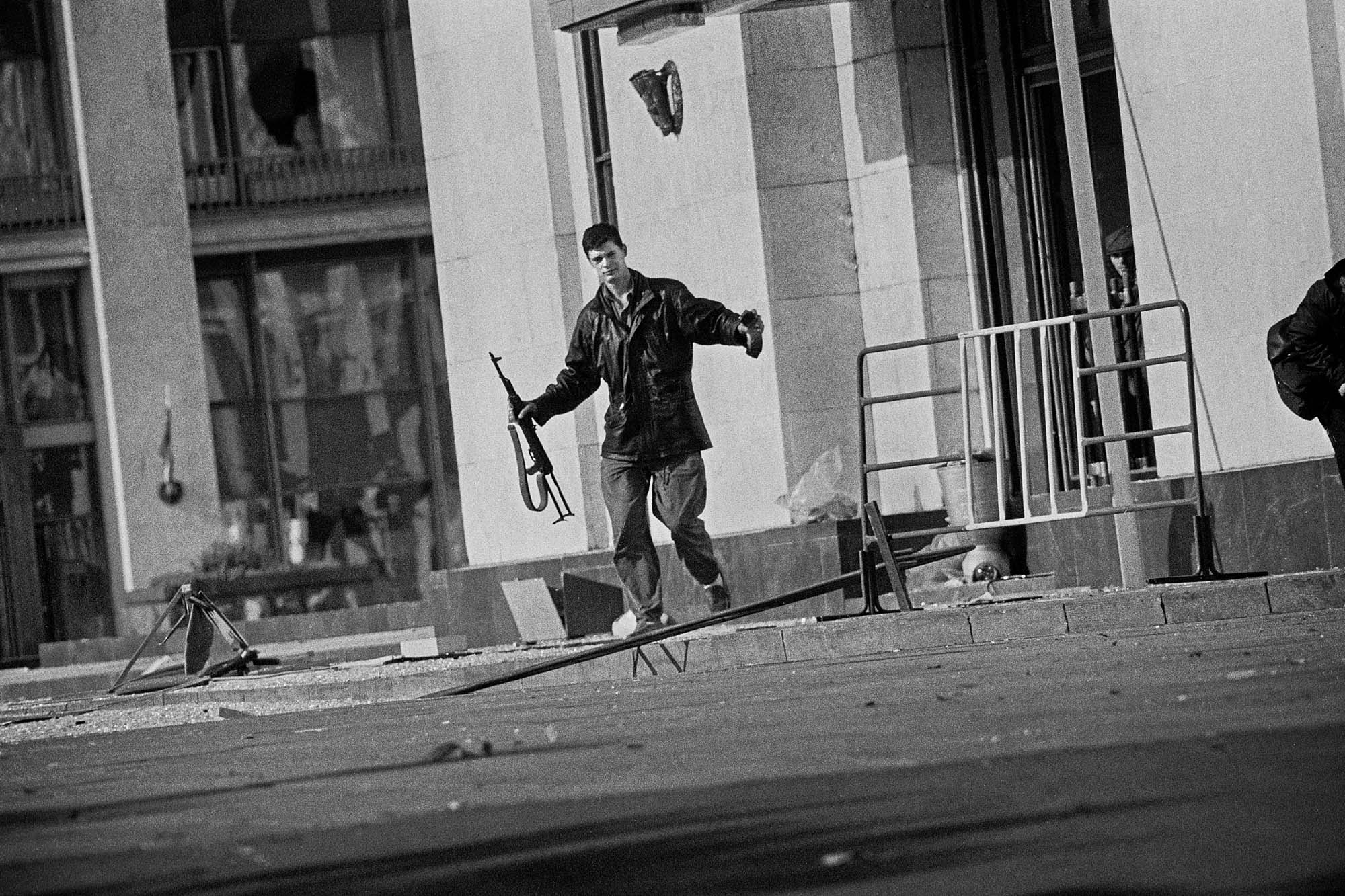 A defender of the House of Soviets surrendering to troops loyal to Boris Yeltsin on Oct. 4. (Vladimir Filonov / MT)
A defender of the House of Soviets surrendering to troops loyal to Boris Yeltsin on Oct. 4. (Vladimir Filonov / MT)
The events of 1993 serve as a cautionary tale to the ruling authorities today to respect dissent and to learn how to live and work with the the political opposition, a former senior Yeltsin aide, Sergei Filatov, said in a remarks published Thursday in Rossiiskaya Gazeta.
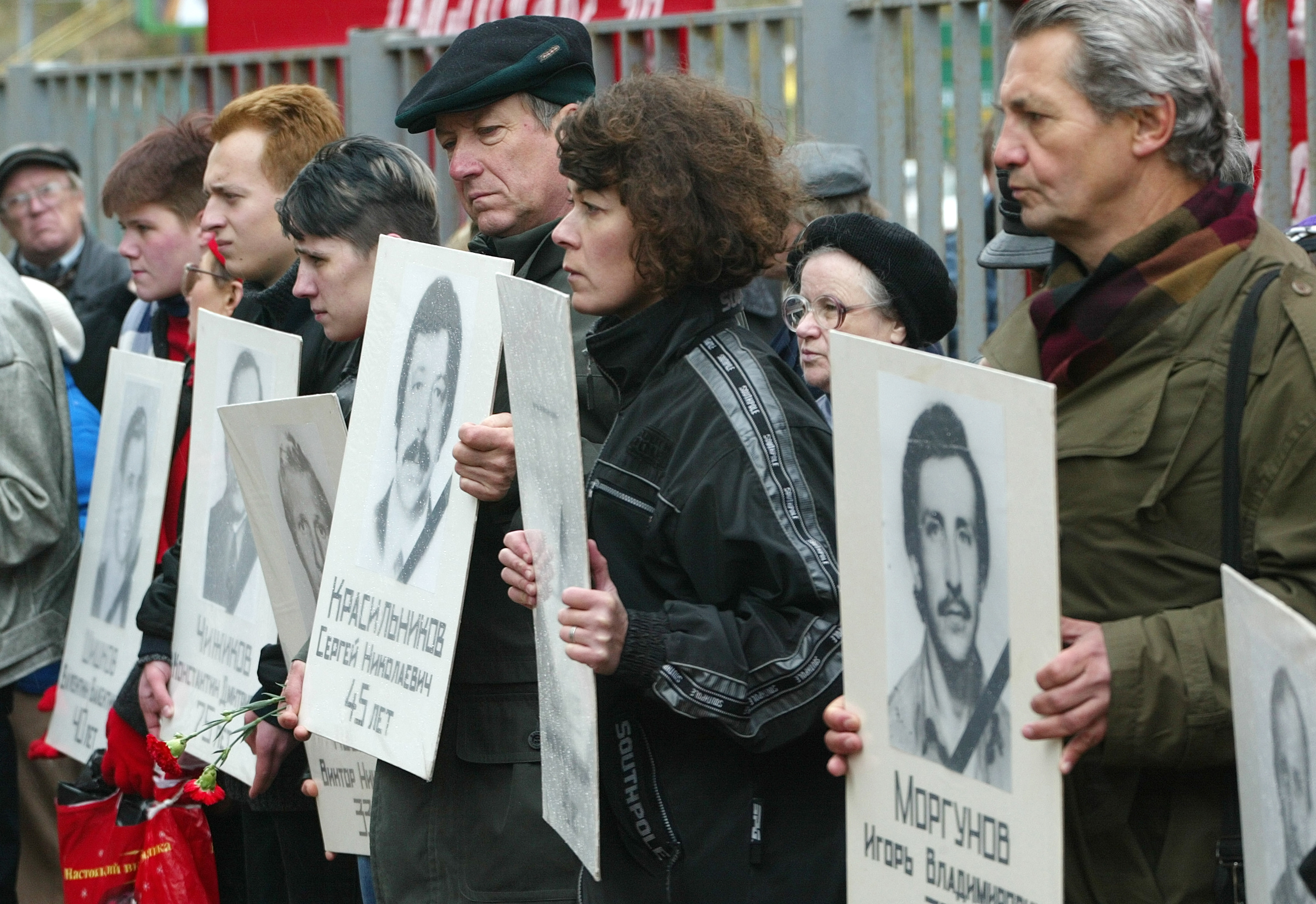 Victims of the conflict remembered in an anniversary service some years ago. (Igor Tabakov / MT)
Victims of the conflict remembered in an anniversary service some years ago. (Igor Tabakov / MT)
The authorities estimate that 187 people died and 437 other were injured in the deadliest single event of street fighting in Moscow since the 1917 Revolution.
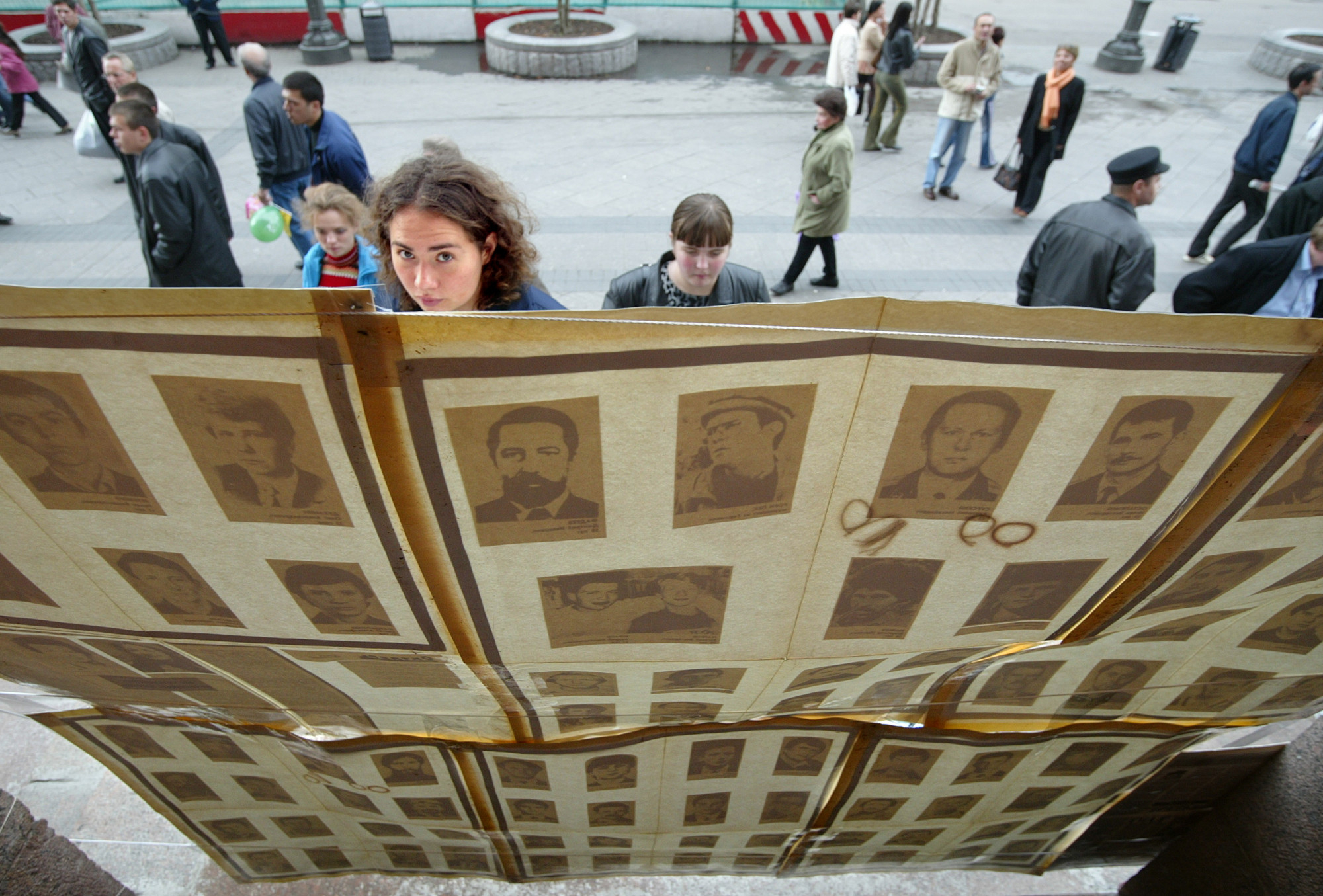 Other sources say up to 2,000 people might have died. (Igor Tabakov / MT)
Other sources say up to 2,000 people might have died. (Igor Tabakov / MT)
While Yeltsin returned stability to Moscow streets, he did it through bloodshed and the introduction of direct presidential rule, an expanded power that is enjoyed by Kremlin leaders to this day.
Related articles:
A Message from The Moscow Times:
Dear readers,
We are facing unprecedented challenges. Russia's Prosecutor General's Office has designated The Moscow Times as an "undesirable" organization, criminalizing our work and putting our staff at risk of prosecution. This follows our earlier unjust labeling as a "foreign agent."
These actions are direct attempts to silence independent journalism in Russia. The authorities claim our work "discredits the decisions of the Russian leadership." We see things differently: we strive to provide accurate, unbiased reporting on Russia.
We, the journalists of The Moscow Times, refuse to be silenced. But to continue our work, we need your help.
Your support, no matter how small, makes a world of difference. If you can, please support us monthly starting from just $2. It's quick to set up, and every contribution makes a significant impact.
By supporting The Moscow Times, you're defending open, independent journalism in the face of repression. Thank you for standing with us.
Remind me later.


